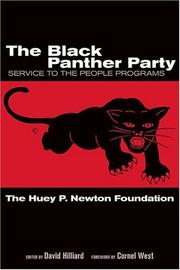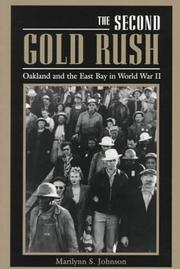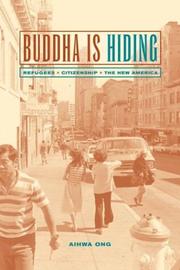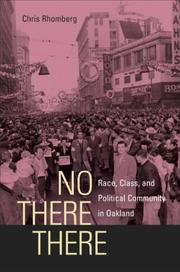| Listing 1 - 6 of 6 |
Sort by
|
Book
ISBN: 081393284X 9780813932842 9780813932811 0813932815 Year: 2012 Publisher: Charlottesville University of Virginia Press
Abstract | Keywords | Export | Availability | Bookmark
 Loading...
Loading...Choose an application
- Reference Manager
- EndNote
- RefWorks (Direct export to RefWorks)
Trained as a journalist, a political scientist, and a geographer, the author provides a unique perspective supported by numerous maps and extensive interviews. Winner of awards from the French Society of Geography and the French National Academy of Sciences.
Emigration and immigration --- Geopolitics --- Racism --- Minorities --- World politics --- Bias, Racial --- Race bias --- Race prejudice --- Racial bias --- Prejudices --- Anti-racism --- Critical race theory --- Race relations --- Ethnic minorities --- Foreign population --- Minority groups --- Persons --- Assimilation (Sociology) --- Discrimination --- Ethnic relations --- Majorities --- Plebiscite --- Segregation --- Social aspects. --- Social conditions. --- Oakland (Calif.) --- City of Oakland (Calif.) --- Civilization. --- Race relations.
Book
ISBN: 1469606259 0807895857 9780807895856 9781469606255 9780807871133 0807871133 9780807833766 0807833762 9798893133783 Year: 2010 Publisher: Chapel Hill [N.C.] : University of North Carolina Press,
Abstract | Keywords | Export | Availability | Bookmark
 Loading...
Loading...Choose an application
- Reference Manager
- EndNote
- RefWorks (Direct export to RefWorks)
Living for the City: Migration, Education, and the Rise of the Black Panther Party in Oakland, California
Education, Higher --- African Americans --- College students --- Higher education --- Postsecondary education --- Universities and colleges --- Afro-Americans --- Black Americans --- Colored people (United States) --- Negroes --- Africans --- Ethnology --- Blacks --- History --- Education (Higher) --- Migrations --- Social conditions --- Politics and government --- Education --- Black Panther Party --- Black Panthers --- BPP (Black Panther Party) --- B.P.P. (Black Panther Party) --- Black Panther Party for Self-Defense --- History. --- Oakland (Calif.) --- City of Oakland (Calif.) --- Ethnic relations. --- Black people

ISBN: 1283889544 0826343953 9780826343956 9780826343949 0826343945 9781283889544 Year: 2008 Publisher: Albuquerque
Abstract | Keywords | Export | Availability | Bookmark
 Loading...
Loading...Choose an application
- Reference Manager
- EndNote
- RefWorks (Direct export to RefWorks)
The Black Panther Party represents Black Panther Party members' coordinated responses over the last four decades to the failure of city, state, and federal bureaucrats to address the basic needs of their respective communities. The Party pioneered free social service programs that are now in the mainstream of American life. The Party's Sickle Cell Anemia Research Foundation, operated with Oakland's Children's Hospital, was among the nation's first such testing programs. Its Free Breakfast Program served as a model for national programs. Other initiatives included free clinics, grocery givea.
African Americans --- Poor --- Community life --- Afro-Americans --- Black Americans --- Colored people (United States) --- Negroes --- Africans --- Ethnology --- Blacks --- Associations, institutions, etc. --- Human ecology --- Disadvantaged, Economically --- Economically disadvantaged --- Impoverished people --- Low-income people --- Pauperism --- Poor, The --- Poor people --- Persons --- Social classes --- Poverty --- Services for --- Societies, etc. --- Politics and government --- Economic conditions --- Black Panther Party --- Black Panthers --- BPP (Black Panther Party) --- B.P.P. (Black Panther Party) --- Black Panther Party for Self-Defense --- History. --- Sozialhilfe --- Armut --- Schwarze --- Oakland. --- Oakland --- Black power --- Partei --- USA --- Oakland, Calif. --- City of Oakland (Calif.) --- Black people

ISBN: 0520918436 0585078874 9780520918436 9780585078878 0520081919 0520207017 Year: 1993 Publisher: Berkeley University of California Press
Abstract | Keywords | Export | Availability | Bookmark
 Loading...
Loading...Choose an application
- Reference Manager
- EndNote
- RefWorks (Direct export to RefWorks)
More than any event in the twentieth century, World War II marked the coming of age of America's West Coast cities. Almost overnight, new war industries prompted the mass urban migration and development that would trigger lasting social, cultural, and political changes. For the San Francisco Bay Area, argues Marilynn Johnson, the changes brought by World War II were as dramatic as those brought by the gold rush a century earlier.Focusing on Oakland, Richmond, and other East Bay shipyard boomtowns, Johnson chronicles the defense buildup, labor migration from the South and Midwest, housing issues, and social and racial conflicts that pitted newcomers against longtime Bay Area residents. She follows this story into the postwar era, when struggles over employment, housing, and civil rights shaped the urban political landscape for the 1950s and beyond. She also traces the cultural legacy of war migration and shows how Southern religion and music became an integral part of Bay Area culture.Johnson's sources are wide-ranging and include shipyard records, labor histories, police reports, and interviews. Her findings place the war's human drama at center stage and effectively recreate the texture of daily life in workplace, home, and community. Enriched by the photographs of Dorothea Lange and others, The Second Gold Rush makes an important contribution to twentieth-century urban studies as well as to California history.
Rural-urban migration --- World War, 1939-1945 --- European War, 1939-1945 --- Second World War, 1939-1945 --- World War 2, 1939-1945 --- World War II, 1939-1945 --- World War Two, 1939-1945 --- WW II (World War, 1939-1945) --- WWII (World War, 1939-1945) --- History, Modern --- Cities and towns, Movement to --- Country-city migration --- Migration, Rural-urban --- Rural exodus --- Migration, Internal --- Rural-urban relations --- Urbanization --- History --- Oakland (Calif.) --- San Francisco Bay Area (Calif.) --- Bay Area, San Francisco (Calif.) --- San Francisco Bay Region (Calif.) --- San Francisco Region (Calif.) --- City of Oakland (Calif.) --- History.

ISBN: 159734513X 9786612762925 0520937163 1282762923 9780520937161 1417522798 9781417522798 0520229983 9780520229983 0520238249 9780520238244 9781597345132 6612762926 9781282762923 Year: 2003 Publisher: Berkeley ; London : University of California Press,
Abstract | Keywords | Export | Availability | Bookmark
 Loading...
Loading...Choose an application
- Reference Manager
- EndNote
- RefWorks (Direct export to RefWorks)
Fleeing the murderous Pol Pot regime, Cambodian refugees arrive in America as at once the victims and the heroes of America's misadventures in Southeast Asia; and their encounters with American citizenship are contradictory as well. Service providers, bureaucrats, and employers exhort them to be self-reliant, individualistic, and free, even as the system and the culture constrain them within terms of ethnicity, race, and class. Buddha Is Hiding tells the story of Cambodian Americans experiencing American citizenship from the bottom-up. Based on extensive fieldwork in Oakland and San Francisco, the study puts a human face on how American institutions-of health, welfare, law, police, church, and industry-affect minority citizens as they negotiate American culture and re-interpret the American dream. In her earlier book, Flexible Citizenship, anthropologist Aihwa Ong wrote of elite Asians shuttling across the Pacific. This parallel study tells the very different story of "the other Asians" whose route takes them from refugee camps to California's inner-city and high-tech enclaves. In Buddha Is Hiding we see these refugees becoming new citizen-subjects through a dual process of being-made and self-making, balancing religious salvation and entrepreneurial values as they endure and undermine, absorb and deflect conflicting lessons about welfare, work, medicine, gender, parenting, and mass culture. Trying to hold on to the values of family and home culture, Cambodian Americans nonetheless often feel that "Buddha is hiding." Tracing the entangled paths of poor and rich Asians in the American nation, Ong raises new questions about the form and meaning of citizenship in an era of globalization.
Cambodian Americans --- Refugees --- Citizenship --- Birthright citizenship --- Citizenship (International law) --- National citizenship --- Nationality (Citizenship) --- Political science --- Public law --- Allegiance --- Civics --- Domicile --- Political rights --- Displaced persons --- Persons --- Aliens --- Deportees --- Exiles --- Cambodians --- Ethnology --- Social conditions. --- Ethnic identity. --- Civil rights --- Social aspects --- Law and legislation --- Oakland (Calif.) --- City of Oakland (Calif.) --- Ethnic relations. --- Américains d'origine cambodgienne --- Réfugiés --- Social conditions --- Ethnic identity --- Conditions sociales --- Identité ethnique --- Family. --- Cambodians. --- Adaptation. --- Refugees. --- Américains d'origine cambodgienne --- Réfugiés --- Citoyenneté --- Droits --- Conditions sociales. --- Identité collective. --- american citizenship. --- american culture. --- american dream. --- american institutions. --- anthropology. --- asia scholars. --- buddhism. --- buddhists. --- california. --- cambodian americans. --- cambodian refugees. --- citizenship experience. --- cultural anthropologists. --- demographic studies. --- ethnic tensions. --- fieldwork. --- globalization. --- minority citizens. --- modern history. --- new america. --- nonfiction study. --- oakland. --- pol pot regime. --- race and class. --- regional history. --- san francisco. --- social sciences. --- southeast asia. --- textbooks. --- welfare. --- Citoyenneté --- Identité collective.

ISBN: 1282360299 9786612360299 0520940881 1597347760 9780520940888 1417525487 9781417525485 6612360291 9781597347761 0520236181 9780520236189 9781282360297 Year: 2004 Publisher: Berkeley University of California Press
Abstract | Keywords | Export | Availability | Bookmark
 Loading...
Loading...Choose an application
- Reference Manager
- EndNote
- RefWorks (Direct export to RefWorks)
Challenged by Ku Klux Klan action in the '20s, labor protests culminating in a general strike in the '40's, and the rise of the civil rights and black power struggles of the '60s, Oakland, California, seems to encapsulate in one city the broad and varied sweep of urban social movements in twentieth-century America. Taking Oakland as a case study of urban politics and society in the United States, Chris Rhomberg examines the city's successive episodes of popular insurgency for what they can tell us about critical discontinuities in the American experience of urban political community.
Social conflict --- General strikes --- Social classes --- Black power --- African Americans --- Class conflict --- Class struggle --- Conflict, Social --- Social tensions --- Interpersonal conflict --- Social psychology --- Sociology --- General strike --- Strikes and lockouts --- Class distinction --- Classes, Social --- Rank --- Caste --- Estates (Social orders) --- Social status --- Class consciousness --- Classism --- Social stratification --- Power, Black --- Black nationalism --- Afro-Americans --- Black Americans --- Colored people (United States) --- Negroes --- Africans --- Ethnology --- Blacks --- History --- Civil rights --- Ku Klux Klan (1915- ) --- Ku Klux Klan (19th century) --- Knights of the Ku Klux Klan (1915- ) --- K.K.K. (Ku Klux Klan (1915- )) --- KKK (Ku Klux Klan (1915- )) --- K.K.K.K. (Knights of the Ku Klux Klan (1915- )) --- KKKK (Knights of the Ku Klux Klan (1915- )) --- National Knights of the Ku Klux Klan Association of America --- National Knights of the K.K.K. --- Invisible Empire --- Oakland (Calif.) --- City of Oakland (Calif.) --- Social conditions --- Politics and government --- Race relations. --- Black people --- 20th century american culture. --- 20th century american history. --- black power struggle. --- case study. --- civil rights movement. --- class hegemony. --- class in america. --- corporate power. --- cultural studies. --- democracy. --- economic reform. --- ethnic patronage. --- general strikes. --- kkk. --- ku klux klan. --- labor protests. --- labor strikes. --- labor. --- oakland california. --- political machines. --- political. --- race in america. --- racial conflict. --- social movements. --- united states of america. --- urban political community. --- urban politics. --- urban society. --- white middle class. --- working class.
| Listing 1 - 6 of 6 |
Sort by
|

 Search
Search Feedback
Feedback About UniCat
About UniCat  Help
Help News
News